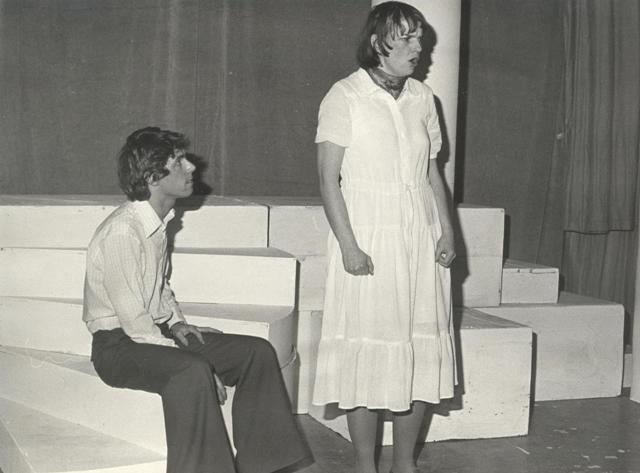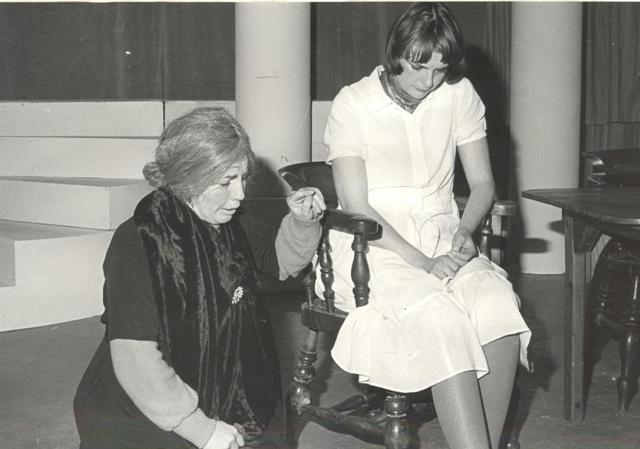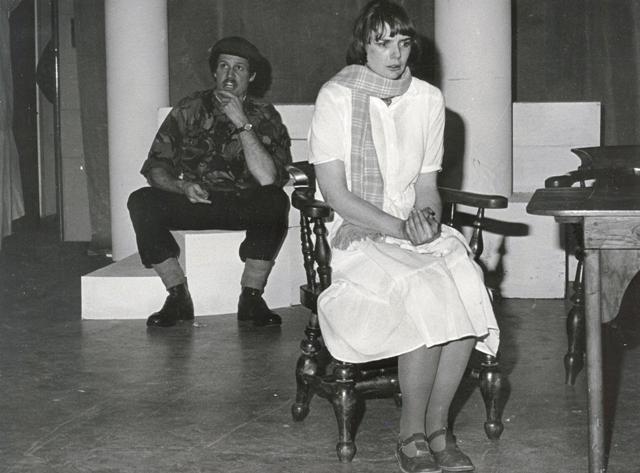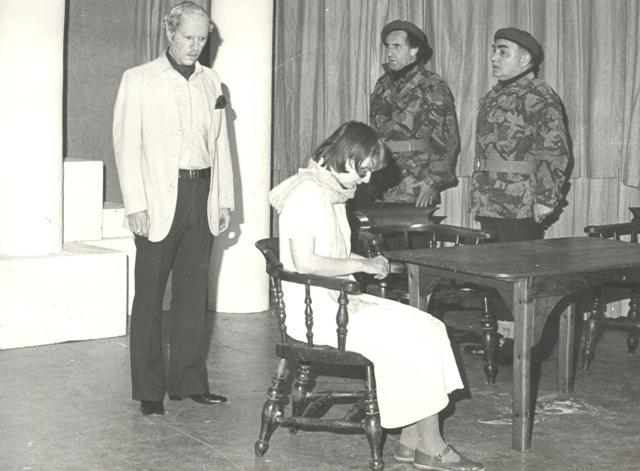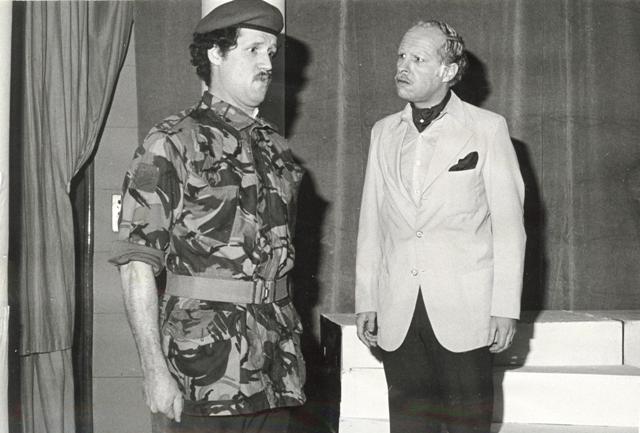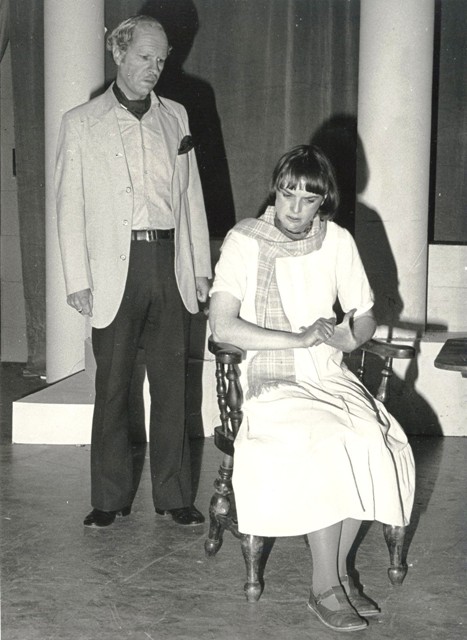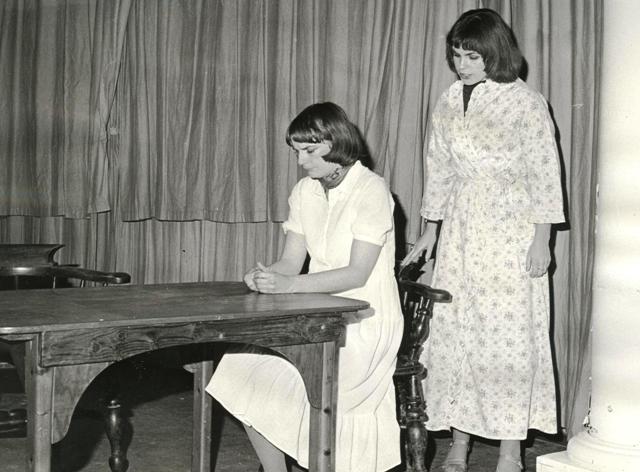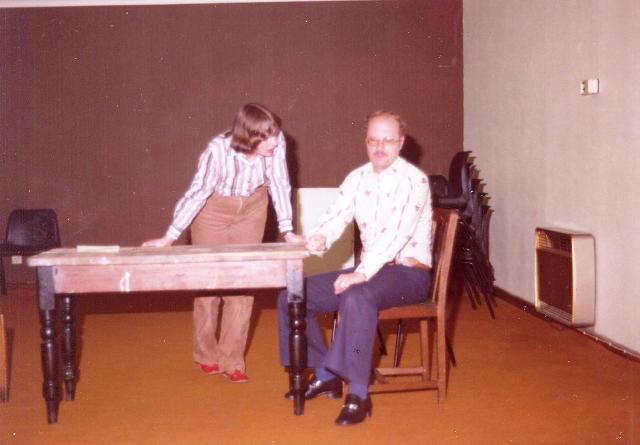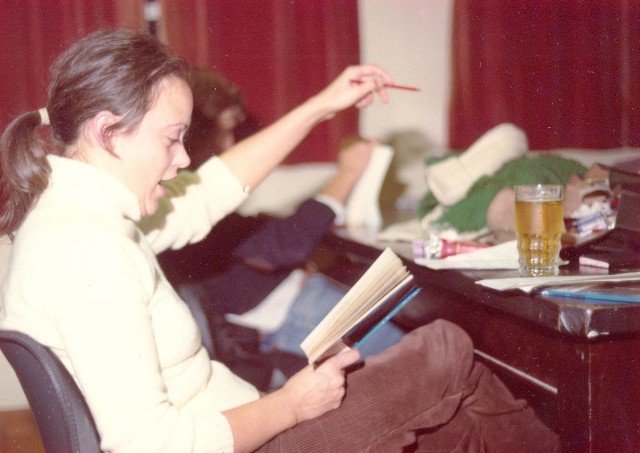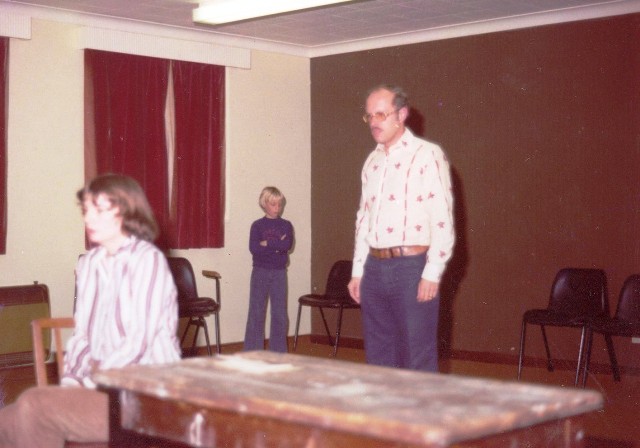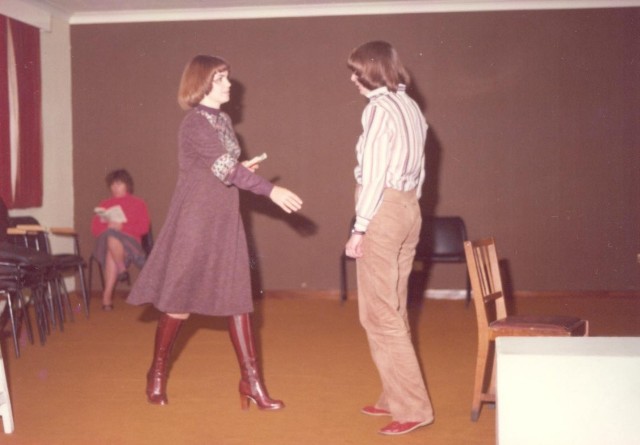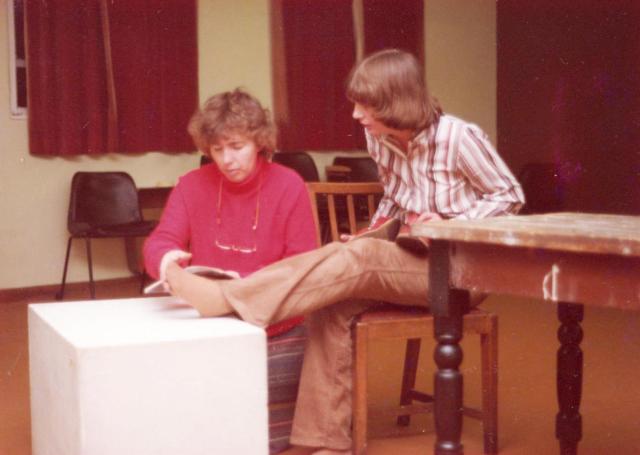Antigone
Written by Jean Anouilh
Thurs 30th November - Sat 1st December & Thurs 7th December - Sat 9th December 1978
Directed by Jill Sawyer
In a tragedy he who kills is as innocent as he who gets killed.
"Antigone a raison mais Creon n'a pas tort" (Antigone is right, but Creon isn't wrong) ALBERT CAMUS.
previous
production
next
production
Jean Anouilh (1910 - 1987)
Anouilh, a French dramatist, was born the son of a tailor in a small village on the outskirts of Bordeaux. After attending local schools, Anouilh enrolled as a law student in the University of Paris, but left after just eighteen months when he found employment as an advertising copywriter. He wrote thirty plays which have been performed worldwide. His early plays were not successes and he struggled through years of poverty. During the Nazi occupation of France, Anouilh did not openly take sides, though he published the play Antigone, often viewed as his most famous work, after which he gained more success.
In 1964, Anouilh's play 'Becket ou l'honneur de Dieu' was made into an Oscar-winning film, starring Peter O'Toole and Richard Burton. In 1970 his work was recognised with the Prix mondial Cino Del Duca.
top of page
Jean Anouilh's play Antigone is a tragedy inspired by Greek mythology and the play of the same name (Antigone, by Sophocles) from the fifth century B.C. In English, it is often distinguished from its antecedent by being pronounced in its original French form, approximately (On-tee-GONN). The play was first published in 1943, during the period when the Nazis occupied France. The character of Antigone took on the role of the French Resistance and Creon took on the role of the Vichy Government, symbolising the power struggle present in France at the time - the parallels to the French Resistance and the Nazi occupation are clear. In an allegorical way, the play is openly critical about collaboration with the Nazis.
Just as in the myth and original play, the action follows the battle for Thebes in which both of Antigone's brothers have been killed. Creon, now king, has decreed that while Antigone's brother Eteocle should be given the usual respectful burial, Polynices must be left as carrion for scavengers. Antigone chooses to attempt to bury Polynices, and is brought before Creon as a prisoner. Creon attempts to overlook the offence, perhaps because Antigone is engaged to his son Haemon, but Antigone refuses to be denied the responsibility for her actions.
top of page
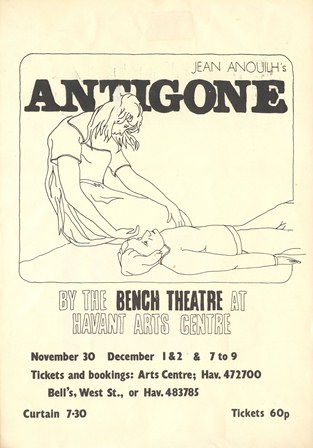
This play was staged at Havant Arts Centre, East Street Havant - Bench Theatre's home since 1977.
| Chorus | John Scadding |
| Antigone | Nicola Fraser |
| Nurse | Cindy Findon |
| Ismene | Jill Duncan |
| Haemon | Chris Shaw |
| Creon | Ian Nelson |
| 1st Guard (Jonas) | Peter Duncan |
| 2nd Guard (Corporal) | Derek Cusdin |
| 3rd Guard | David Spackman |
| Messenger | Andrew Everitt |
| Page | Darren Nelson |
| Eurydice | Denise Stapleton |
Crew
| Director | Jill Sawyer |
| Stage Manager | Robert MacGregor |
| Assistant Stage Managers | Langley Gifford
Anne Brodrick |
| Lighting Design | Tony Terribile |
| Set Design | Robert MacGregor
Maureen Wellstead |
| Front of House | Robbie Cattermole |
| Publicity | Tony Czapp |
Director's Notes
The original story of Antigone by Sophocles was first performed in the 5th century B.C., Anhouilh's version was produced in Paris in 1942 against the background of occupied France. "In a tragedy he who kills is as innocent as he who gets killed." Creon says yes and accepts life - Antigone says no and rejects happiness and life which she considers to be an ugly compromise.
Jill Sawyer
top of page
Production Photographs

